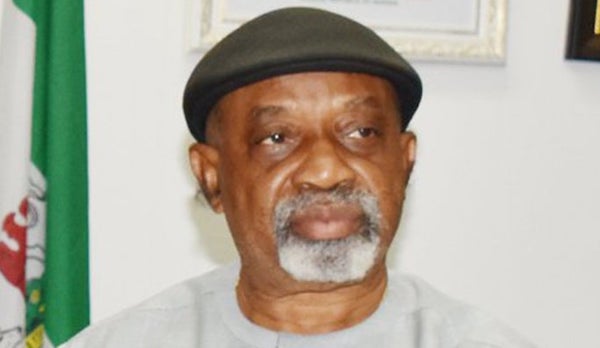News
Nigerian govt begs judicial workers to shelve nationwide strike

The Federal Government on Monday, April 13, appealed to the Judicial Staff Union of Nigeria (JUSUN) to suspend its nationwide industrial action, which had paralysed activities in courts across the country.
The union had on April 6 embarked on a nationwide strike to protest non-implementation of the financial autonomy of the nation’s judiciary.
Minister of Labour and Employment, Sen. Chris Ngige, made the appeal at a reconciliatory meeting between the Federal Government and the leadership of the union in Abuja.
Ngige reminded the striking judicial workers that like doctors and nurses, they were on essential duties and should not go on strike.
According to him, the country cannot make progress economically and socially, when the laws of the country are not enforced.
“You are important people and that is why we waited to see if there can be an in-house reconciliation with the Chief Justice of Nigeria (CJN).
“But since progress was not made, we decided to exercise our mandate here as Ministry of Labour and Employment.
“Grant us peace and we are going to handle this matter in a way that does not lose sight of what you are pursuing. I will do a report on this meeting and forward to the President when he returns.
Read also: Judicial workers vow to continue strike action until demands are met
“I will make a commitment here. Executive Order 10 and its application, granting autonomy to the judiciary which is topmost on your demand will be tackled because it is a constitutional issue.
“Even Governors owe their offices to the constitution. You don’t pick and choose what to obey. However, we must handle this matter with maturity and utmost patriotism,” Ngige said.
Speaking, the President of JUSUN, Mr Marwan Adamu, said that the union was guided by the constitution of the country in its action, stressing that democracy had to thrive on the Rule of Law.
“The Federal Republic of Nigeria is a federation and is guided by a constitution.
”However, we observed that the particular provision of the constitution that grants financial autonomy to the judiciary has never been obeyed as much as it should be, particularly Section 21(3) and Section 81(3),” he said.
Join the conversation
Support Ripples Nigeria, hold up solutions journalism
Balanced, fearless journalism driven by data comes at huge financial costs.
As a media platform, we hold leadership accountable and will not trade the right to press freedom and free speech for a piece of cake.
If you like what we do, and are ready to uphold solutions journalism, kindly donate to the Ripples Nigeria cause.
Your support would help to ensure that citizens and institutions continue to have free access to credible and reliable information for societal development.






















